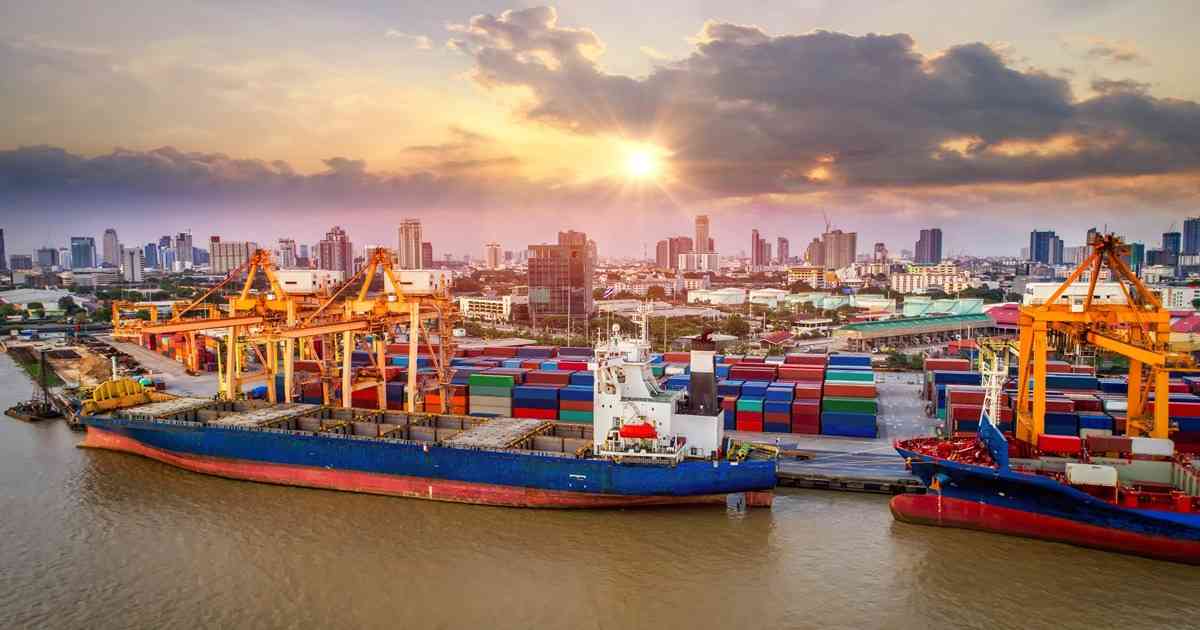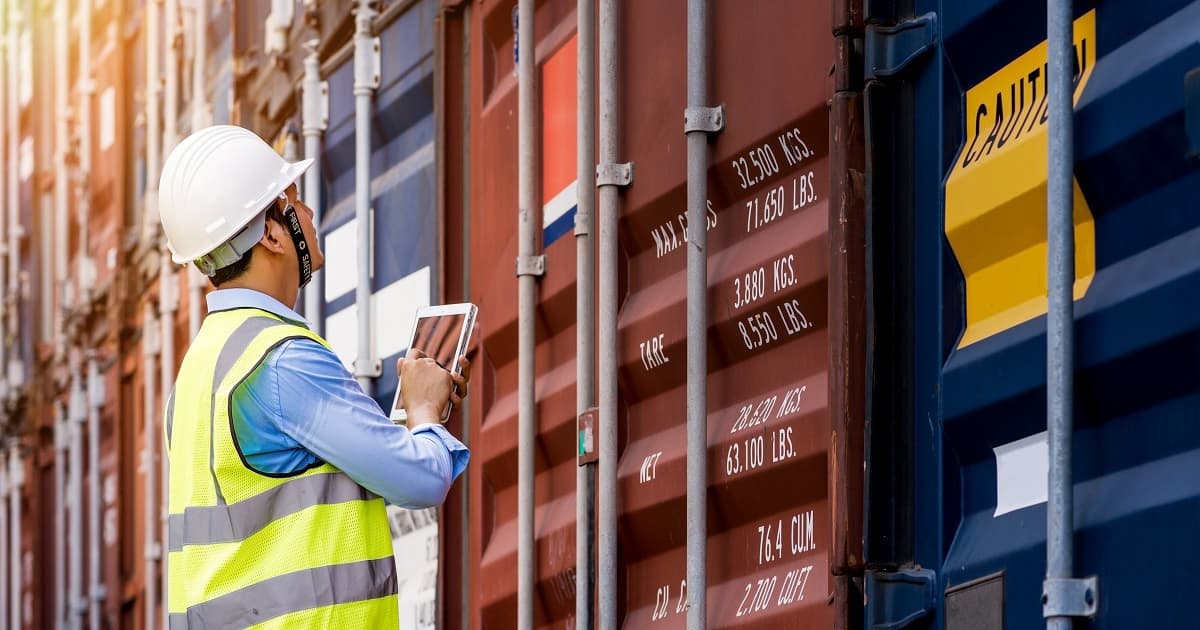
Supply Chain
Article | May 26, 2023
Discover future trends & innovations at upcoming warehousing conferences and events. Explore technologies, growth opportunities and networking possibilities to improve the supply chain operations.
Warehousing and distribution play crucial roles in the logistics industry. To enhance the expertise and gain a competitive edge, professionals must attend logistics conferences in 2023, including the supply chain management and warehousing conferences and events. These gatherings offer a platform for industry leaders to exchange ideas, learn from experts, and explore the latest advancements.
The following warehousing conferences and events will provide tailored discussions on warehouse optimization, inventory management, and process improvement.
1. ASCM Connect 2023: Europe
June 27-28, 2023 | Brussels (Belgium)
ASCM CONNECT 2023: Europe, held at DoubleTree by Hilton Brussels City, is a must-attend event for supply chain professionals. This networking opportunity will offer educational sessions, trending topics, and valuable insights from industry leaders like Matteo Coppola (Integrated Business Planning Director Kellogg), Hans Ehm (Senior Principal Engineer Supply Chain and Head of Supply Chain Innovations Infineon), Juliana Hsuan (Professor, Operations Management and Supply Chain Management Copenhagen Business School), and more. Logistics and supply chain industry leaders will benefit from the event by gaining knowledge on supply chain management trends and innovations. One of this logistics events further equips professionals with the tools to streamline operations, improve efficiency, and reduce costs.
2. Innovation and Industrial Logistics (ICIIL 2023)
August 25-27, 2023 | Tapi (Macao)
The 9th International Conference on Innovation and Industrial Logistics (ICIIL 2023) is an exclusive supply chain conference for logistics and warehouse management industry leaders. The conference will include topics like purchasing, supply chain management, transportation, and warehouse optimization. This warehouse event will offer valuable insights into the latest trends and advancements. Professionals will be able to network with experts and peers, fostering collaboration and partnerships. Attending ICIIL 2023, held at the Macau University of Science and Technology, will enable attendees to enhance their expertise, optimize operations, and stay ahead in the dynamic supply chain and logistics industry.
3. ASCM Connect 2023: North America
September 11-13, 2023 | Louisville (Kentucky)
An indispensable supply chain event for logistics industry leaders will have 120+ speakers, 70+ education sessions, and eight innovation labs. This premier event will offer a comprehensive program with thought-provoking insights, hands-on workshops, and networking opportunities. Keynotes by influential figures such as John J. Sullivan (Former United States Ambassador to Russia (2020-2022)), Elliott Harris (United Nations Chief Economist), and Amanda Manna (Futurist and Vice President, Singularity University) will further enhance the experience. Attending ASCM CONNECT 2023 will enable professionals to stay ahead in the dynamic supply chain industry and encourage them to enlarge their network with people having different ideas from the industry to improve business operations.
4. Automotive Logistics and Supply Chain
September 26-28 2023 | Dearborn (Michigan)
A pivotal event for the supply chain and logistics industry, Automotive Logistics & Supply Chain Global will offer the opportunity to regain control and confidence in North America's automotive supply chain after years of crisis. It will explore the impact of policies on supply chain operations and emphasize the importance of building diverse and inclusive teams. Key speakers include Renee Wawrzynski (Executive Director of Global Logistics at General Motors), Chris Styles (Vice President of Logistics at Lucid Motors), and Oliver Bilstein(Vice-President Production Control, Logistics, and Material Control. BMW Manufacturing Co.), and others will share valuable insights. In addition, this warehouse conference event will be equipping professionals to navigate the challenges of a rapidly changing industry.
5. LogiPharma
October 04-06, 2023| Boston (Massachusetts)
This event for pharma, biotech, and medtech supply chain executives in North America, has been a beacon of innovation and best practices since its inception in 2002. From a network monitoring expert's perspective, attending LogiPharma offers industry leaders in the supply chain and logistics industry an unparalleled opportunity to stay ahead of the curve. By bringing together supply chain leaders from the manufacturing and distribution sectors, LogiPharma will promote collaboration and enhance supply chain management effectiveness. Attending this logistics and pharmacy conference will enable executives to be updated with industry trends and build vital relationships through interactive sessions and workshops by key speakers like Samir Gami (Sr. Director of Advanced Customer Capabilities Johnson & Johnson - Janssen), Ed Ram (Sr. Director, Supply Chain Sagent Pharmaceuticals), David Sokoloff (Director, Global Logistics & Materials Management Novavax), and more. Prepare to transform the business and build a resilient supply chain in the dynamic pharmaceutical industry.
6. Logistics Technology USA 2023
November 1-2, 2023 | Dallas (Texas)
To foster growth and disruption in the logistics industry, Logistics Technology USA is the premier event where logistics technology innovators gather. This warehouse management conference will offer logistics service providers the opportunity to experiment, break barriers, and create the future of logistics. With a focus on cutting-edge technologies like machine learning, drones, robotics, and artificial intelligence, attendees can gain valuable insights to enhance their businesses. Key speakers will share their expertise, including Pritha Mehra (Chief Information Officer and Executive Vice President of USPS), Ben Cubitt (Senior Vice President of Procurement and Engineering Uber Freight), Geoff Kelley, and others. Further, the conference will offer valuable sponsorship opportunities to get your brand in front of prospects and clients who can transform your business. The networking sessions also facilitate meaningful connections, helping kickstart sales cycles and accelerate business development efforts.
7. 7th Annual European Supply Chain Management Summit
November 07-08, 2023 | Las Vegas (US)
The European Supply Chain Management Strategies Summit is a leading supply chain conference that will offer senior leadership case studies and solutions. This event's primary focus will be to improve logistics and inventory management, implement IoT and new technologies, enhance supplier collaboration and transparency, and mitigate process risks. Additionally, the event is CPD accredited, ensuring the best opportunities for professional development. The event will also be enriched with inputs from the following key speakers, including Angelo Dalporto, a renowned expert in logistics and inventory management, Damodar Hegde, an authority on implementing IoT and new technologies, Leon van der Merwe, a specialist in supplier collaboration and transparency, Luke Kerr, a seasoned professional in risk mitigation strategies, and Sebastian Sołtys, an expert in workforce leadership and engagement. Their valuable perspectives and knowledge will help improve the supply chain warehousing and distribution strategies.
8. Future Supply Chain
November 28-29, 2023 | Torrey Pines (California)
Unlock the secrets to achieving total visibility in your supply chain at the upcoming digital supply chain event. With a staggering 69% companies lacking complete transparency, this event is a must-attend for supply chain and logistics industry leaders. The event will provide practical insights from end-user case studies and guide how to implement transformative technologies to propel the supply chain forward. The event will also boast an impressive lineup of key speakers, including Dave Campbell (Associate Director of Supply Chain Transformation, Proposals, & Comms), Sree Duggineni (Executive Director, Supply Chain Operations), Imara Charles (Vice President, Process and Digital Excellence), Marcus Handy (Director of Supply Chain and Operations), Ivy Huynh (Head of Logistics, Supply Chain), Reginald Mingot Blanc (Vice President of Operations & Integrated Supply Chain), Alexandra Garyn (Senior Director of Supply Chain Management), and Hari Perumal (Chief Supply Chain Officer).
9. The Global Destination for Logistics and Supply Chain Innovation
February 05-07, 2024 | Caesars Forum (Las Vegas)
Experience the future of logistics at Manifest, the premier gathering that will unite Fortune 500 global supply chain executives, logistics service providers, innovators, and investors in Las Vegas. This exclusive event will showcase the latest advancements in logistics tech and end-to-end supply chain practices that will help shape the industry's landscape. Supply chain and logistics experts will have unprecedented access to industry leaders and thought-provoking sessions that will provide valuable insights into emerging trends and strategic opportunities. Key speakers include Zane Adams (Co-Founder of EVP Strategy and Development FedUp Foods PBC), Moid Alwy (Chief Supply Chain Officer at EVP), Ian Arthurs (CEO & Founder at Circular.co), Andy Bair (Founding Partner at Sway Ventures), Amiee Bayer-Thomas (Chief Supply Chain Officer at Ulta Beauty), and Stephanie Benedetto (CEO & Founder of Queen of Raw).
10. IWLA Convention & Expo 2024
April 21-23, 2024 | Orlando (Florida)
The 2024 IWLA Convention & Expo is an event for warehousing leaders of North America's logistics and supply chain industry. This supply chain convention will offer a unique opportunity to connect, learn, and network with fellow logistics leaders. Whether you're a first-time attendee or a returning participant, the convention promises valuable experiences and connections that can enhance one's profession in the warehousing industry. Joining this event will provide insights into the latest trends and best practices and foster new relationships and a wealth of ideas to drive warehouse logistics operations forward. In addition, this premier gathering of warehouse industry professionals will also emphasize the solutions and experiences of the key speakers from the industry.
Key Takeaway
Attending logistics conferences such as the supply chain management conferences and warehousing conferences & events in 2023 is essential for professionals in the logistics industry. These events offer valuable opportunities to exchange knowledge, learn from experts, and explore the latest advancements in supply chain management and warehousing practices. Professionals will be able to optimize their supply chains, enhance warehouse operations, and gain a competitive edge in the dynamic business landscape by participating in these gatherings. Drive business success by leveraging the techniques and networking opportunities, these industry-leading events provide.
Read More

Warehousing and Distribution
Article | July 17, 2023
Even though there are distinct differences between demurrage, detention and port charges, many are still oblivious to these differences and there have been several questions on this blog relating to these charges.
This article is about how demurrage, detention, and port charges work.
International Trade and CostsWhen it comes to international trade, majority of the buyers and sellers use Incoterms to decide what each other’s responsibilities and liabilities are in terms of the business, especially related to costs.
Generally, there is very little room to manoeuvre in terms of additional and unbudgeted costs incurred on the shipment and therefore in their own interest it is important that the buyers and sellers take necessary precautions to ensure that all known costs relating to the business are discussed and finalised before the shipment commences.
There are many entities involved in the process of shipping a container from Point A to Point B, each with their own cost component, all of which have to be covered either by the seller or the buyer.
Demurrage, detention and port charges are just some of these costs that may be applicable in a shipment.
While some of the port charges are valid and unavoidable, demurrage, detention and some of the port charges (like port storage, early arrival, late arrival, amendment, shifting etc) are entirely avoidable if everyone in the chain follows the process that they need to follow.
What are port charges?
Port charges, as the name suggests are a set of charges levied by the port or terminal which the container passes through.In terms of container shipments, port charges may include but not limited to below :
Terminal Handling Charge (THC)
Is quite simply the charge levied by the port for the loading and discharging of a container from the ship.. THC differs from port to port, terminal to terminal around the world and is charged both by the load port and discharge port.If the cargo is transhipped anywhere along the route, then the transhipment port also charges this THC but that is paid by the shipping line directly to the port and this quantum is usually included in the ocean freight charged by the line.
Early Arrival Charge
A charge levied by some of the ports/terminals for a container that arrives in the terminal BEFORE the stacks into which it is to be taken has been opened.. Early arrival can happen due to various reasons like a container missed the stacks for the previous vessel narrowly, but since the container is packed, it needs to be taken to the port, The acceptance of containers prior to the stacks/gate open is at the discretion of the Port/Terminal Operator and on the circumstances surrounding the operation of the vessels.
Late Arrival Charge
A late arrival charge is a charge levied by the port for a container that arrives in the terminal AFTER the stacks into which it is to be taken has been closed.. This could be due to delays in documentation, packing delays, inspection, trucking delays and many other situations.The acceptance of containers after the closing of stacks/gate is at the discretion of the Port/Terminal Operator and on the circumstances surrounding the operation of the vessels and if the containers can be accepted without disrupting the schedule of the vessel and ports.
Stuffing/Destuffing of Containers
Some ports/terminals allow the stuffing (packing)/de-stuffing (unpacking) of the containers within the port area and charge customers based on the port tariff.This activity may happen at ports that provide CFS services and allow containers to be packed or unpacked in the port or due to some mistakes when the cargo was originally packed – say incompatible hazardous cargoes packed together.Depending on the port/terminal/country, the port charges may be charged directly to the customer (importer or exporter) or to the shipping line, who in turn will charge this to the customer.
Of course, this is not the full list of port charges but these charges have been mentioned as it relates to the subject under discussion,Demurrage and DetentionWhile some of these port charges may be unavoidable, demurrage and detention charges on the other hand are avoidable charges, but in a lot of cases due to mishandling, miscommunication, misunderstandings and not following the proper protocols, these charges occur..When they do occur, these charges may create quite a financial impact on the whole business and sometimes these costs could be so prohibitive that some customers abandon their cargoes at the destination due to these costs.
Although the most common market practice is to combine demurrage and detention, there are several cases where these are charged separately, and therefore it is important to know the difference between demurrage and detention.
Read More

Warehousing and Distribution
Article | July 11, 2023
Enhance operational efficiency by implementing industry-approved methods for multi-channel inventory management. Taking a holistic approach to control inventory helps multiple sales channels grow.
Multi-channel inventory management is a crucial aspect of the supply chain process that ensures the goods are available to customers through different sales channels. However, with growing penetration of ecommerce technologies and the increasing complexity of supply chain networks, managing inventory across multiple channels has become daunting for businesses. The ability to accurately track inventory levels, ensure stock availability across channels, and optimize fulfillment processes has become critical to achieve success in today's competitive business landscape.
Managing inventory across multiple channels require real-time visibility and tracking of inventory levels which further streamlines the complex process. Inaccurate inventory data can lead to stockouts, overstocking, and lost sales, negatively impacting the business's bottom line. To combat these challenges, businesses must implement a robust multi-channel inventory management system to track inventory across all channels, synchronize stock levels, and automate order fulfillment processes.
An inventory management system can offer businesses a consolidated view of inventory at various locations, such as warehouses, stores, and even online channels. An organized approach is crucial while managing multi-channel inventory or keeping track of moving inventory. Implementing an effective inventory management procedure, managing multi-channel inventory becomes more streamlined and simplified, as well as provides a comprehensive overview.
In addition, as businesses continue to expand their sales channels, multi-channel inventory management has become a vital component of supply chain management. By adopting best practices in multi-channel inventory management, businesses can ensure on-demand access, accurate inventory data, and seamless order fulfilment processes. Additionally, implementing the right procedures will allow organizations to observe an increase in customer satisfaction and experience significant business growth.
The article takes an in-depth look at key benefits, potential challenges, procedural considerations, and the significance of multi-channel inventory management. It delves into the impact of this approach on supply chain performance while providing valuable insights into best practices.
1. Centralize Inventory Management Process
Centralizing multi-channel inventory helps manage supply chain businesses across various channels and locations. Businesses can gain better visibility and control over their inventory processes by consolidating inventory data. However, centralizing inventory management is not without its challenges. One of the major obstacles faced by organizations is ensuring the accuracy and consistency of data across different locations and channels.
Another barrier is integrating various inventory management tools and technologies into a single system. Despite these challenges, centralizing inventory management offers significant benefits, including improved efficiency and reduced costs. In addition, businesses can leverage cloud-based inventory management software and standard operating procedures to centralize and optimize inventory management processes effectively.
2. Adopt Lean Inventory Management Approach
The lean inventory management approach is adequate for managing multi-channel inventory in supply chain businesses. This approach involves reducing excess inventory and only stocking items in demand. While implementation of the approach is complex due to the need for accurate demand forecasting and inventory tracking, it offers multiple advantages, such as reduced inventory carrying costs, improved cash flow, and increased customer satisfaction. To implement a lean inventory management approach in the supply chain business, follow these steps:
Conduct inventory analysis
Categorize items based on value and demand
Implement just-in-time (JIT) replenishment
Leverage forecasting tools
Establish cycle counting and monitoring procedures
Strive for continuous process improvement
This approach helps businesses achieve better inventory accuracy, increase operational agility, and meet customer demands across multiple channels.
3. Utilize ABC Inventory Analysis
ABC inventory analysis is a widely used best practice for multi-channel inventory management in the supply chain. This method categorizes inventory based on its level of importance to the business. ABC inventory analysis categorizes goods into A, B, and C categories based on their impact on overall inventory cost. Category A consists of the most valuable products, category B includes items that fall in between, and category C covers small transactions that are vital for overall profit but have less individual impact. Supply chain businesses can prioritize their resources and make informed decisions by focusing on high-value inventory.
However, implementing this method can be challenging, especially when dealing with extensive inventory data. To successfully address challenges associated with implementing ABC inventory analysis for multi-channel inventory management, businesses must focus on accurate data classification, utilization of advanced analytics tools, and fostering effective team collaboration.
4. Optimize Order Management Process
Optimizing order management involves automating and streamlining order fulfilment for efficient and accurate processing across sales channels. The process ensures optimal inventory control, minimizes fulfilment time, and enhances customer satisfaction, providing a competitive advantage. Aligning inventory levels with actual demand prevents overstocking and reduces holding costs. Additionally, businesses can efficiently allocate inventory from various sources to fulfil orders, reducing the need for excess storage and transportation. The optimization is achieved by adopting automation, system integration, and data analysis. In addition, comprehensive multi-channel order management system offers multiple benefits, including native e-commerce integrations, flexible order fulfilment options, multi-location inventory management, integrated POS capabilities, data-driven inventory planning, and workflow automation, among others.
5. Integrate Sales Channels
Integrating sales channels provides businesses with a unified view of inventory, sales, and customer data, enabling informed decision-making based on real-time information. It helps accurately track products across channels as well as adjust inventory levels based on individual selling rates. The process involves synchronizing channels through a centralized system, ensuring seamless data flow and consistent product information. It includes setting up API integrations, mapping inventory, and conducting thorough testing for smooth order processing. To implement the integration, businesses must utilize technology solutions like inventory management software and enterprise resource planning (ERP) systems. Additionally, it establishes clear communication channels among teams managing different sales channels.
6. Set Cross-Channel Metrics
Cross-channel metrics measure and analyze each sales channel's performance, including online & offline sales, and identify areas for improvement. To set cross-channel metrics for multi-channel inventory, businesses must identify relevant metrics, establish benchmarks, and regularly monitor and evaluate performance. Implementing cross-channel metrics allows businesses to make data-driven decisions based on actual performance rather than relying on assumptions or incomplete data. In addition, supply chain businesses can leverage technology solutions, such as cloud-based inventory management software, to manage and consolidate their data sources effectively. Enforcing cross-channel metrics in multi-channel inventory management helps overcome several challenges, such as lack of visibility across sales channels, difficulty in identifying slow-moving products, and inefficiencies in resource allocation.
7. Automate Supply chain
Automating the supply chain and implementing advanced software systems helps businesses to optimize supply chain processes. Automation reduces manual errors, enhances efficiency, and improves overall productivity. It enables real-time inventory tracking, seamless order processing, and accurate demand forecasting. Businesses can easily overcome manual inefficiencies, bottlenecks, and data discrepancies by automating the supply chain process. The process includes integration of automation tools like inventory management software, order management systems, and warehouse management systems. The systems integrate with sales channels, suppliers, and logistics partners to automate order processing, inventory tracking, and shipment management tasks. Ultimately, businesses achieve better inventory control, faster order fulfilment, and increased customer satisfaction by automating supply chain operations.
Final Thoughts
As the supply chain market evolves, businesses must adopt innovative approaches for multi-channel inventory management. Incorporating additional sales channels into conventional brick-and-mortar operations presents a valuable opportunity to expand customer reach, boost sales, and enhance the overall customer experience. To effectively implement multi-channel sales and inventory management within a retail organization, acquiring a robust retail management system capable of efficiently monitoring inventory levels and facilitating business growth becomes essential. The adoption of an effective system can assist businesses to ensure seamless inventory control and propel sustained success in the competitive market.
Read More

Article | October 19, 2020
Warehouse logistics is the heart of any supply chain operation, assimilating and dispatching goods to ensure availability and timely delivery. With more consumers turning to e-commerce, it’s important for businesses of all sizes to bolster the supply chain to handle the e-commerce business model. According to research conducted by BigCommerce, the top three factors that influence consumers’ online purchasing decisions are convenience, cost and free shipping. In fact, the National Retail Federation (NRF) found that 75% of consumers expect delivery to be free even for orders under $50.
Read More